Empowering Children with Special Needs
Ena Flores, coordinator of the NPH Honduras Special Needs program, describes her experiences working with our special needs population and her hopes for its future.
| Reported by Arielle Augustin Communications Officer, NPH Honduras July 2, 2019 … “When I was a kid, I had a teacher named Profesora Chavelin who helped me a lot because I had difficulties in reading and writing. She helped me to learn without making me feel like I was inferior to the other students, made me feel useful and capable, and gave me individual attention. So that’s where my passion to do the same for others was born,” says Ena Flores. Today, Flores uses her personal understanding of special needs and her natural desire to help others directly in her role as the coordinator of our special education department. On any given day, you might find her leading meetings with her team of eight teachers, reviewing each course’s lesson plans, or facilitating activities in the recycling, piñata-making, or condiment workshop.“In my work, I try to get rid of barriers for children with special needs. Some people might ask ‘why teach them colors or numbers if they’re never going to learn?’ But my answer is, ‘Yes, they can learn and they can learn a lot.’ “ After 12 years working with children and adults with special needs and four years working at NPH Honduras, Ena knows all too well the challenges her students might’ve faced if they had not come here. According to the United Nations Development Program (UNDP) and Court of Human Rights (UNCHR), 80% of the world’s population of people living with disabilities lives in developing countries, particularly in indigenous rural communities. Undeniably, the correlation between poverty and disability is a strong one. Having a disability can reduce the likelihood of an individual’s access to education, employment, and healthcare, which can ultimately result in low wages and food and living insecurity. The high costs and strong social stigma associated with having special needs further complicate the situation of people living with them and their families. For those families that lack financial and social support, providing adequate care oftentimes proves to be an overwhelming responsibility. “The majority of our special needs population at NPH Honduras, especially those with severe disabilities, doesn’t have known family members. They were most likely abandoned by them,” remarks Flores. She contends that, “Families of those with special needs, the ones who are most likely to fight for them, don’t receive the support they need. The special needs population in Honduras is big and it needs more help from the government to get access to healthcare and education.” According to UNICEF, in 2010 Honduras reported only 43% of girls and 57% of boys with disabilities are in the school system. Since Honduras doesn’t have a national curriculum for special needs education, Flores and her team create their own, using the standard curriculum and adapting it to her students’ abilities. Together, using a range of cognitive and motor disorder diagnostic tests, they provide students an education adapted to their learning levels. They train teachers at our traditional school, so that they can incorporate children with mild intellectual disabilities into their classrooms. “At NPH they have the opportunity to develop themselves as people, relate to others, and realize that they are capable of doing things for themselves,” says Flores of her students. “I really like this feeling of being together as a family. You see interaction between the kids with and without special needs between all of the homes.” With regards to her profession, Flores feels a deep sense of satisfaction, “I’m a happy teacher, because we — the students and I — understand each other. I love knowing that we can communicate, even if it’s not through spoken words. I’ve learned to share, to be patient, and to treat them as they are and not as they should be.” “One of my best memories was when I received a hug from Honoro*. It was the first time that he ever hugged me, which is really difficult from someone with autism to do. I will never forget it.” Currently pursuing her master’s degree in social pedagogy at the National Pedagogic University in Tegucigalpa, she studies the participation of individuals with special needs who can’t verbally communicate. She wants to apply her studies to her work to engage her students and give them more freedom to make decisions for themselves. “I believe that we can all help people with special needs to feel empowered. We just have to learn to see the ability in the disability.” *Children’s names have been changed to protect their privacy. Related Information: |
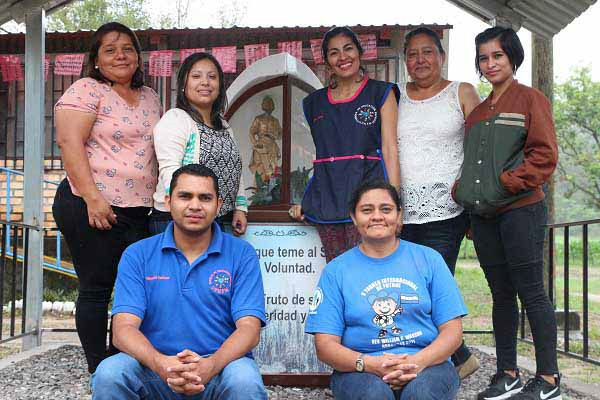 Flores and her team work together to help their students reach their full potential. 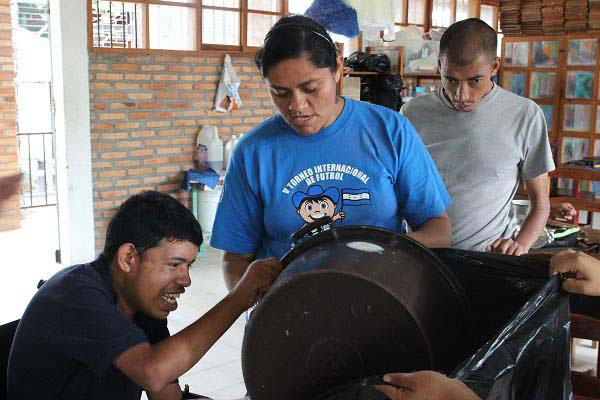 In our workshops, our students learn to make piñatas, spices, and recycle paper material. 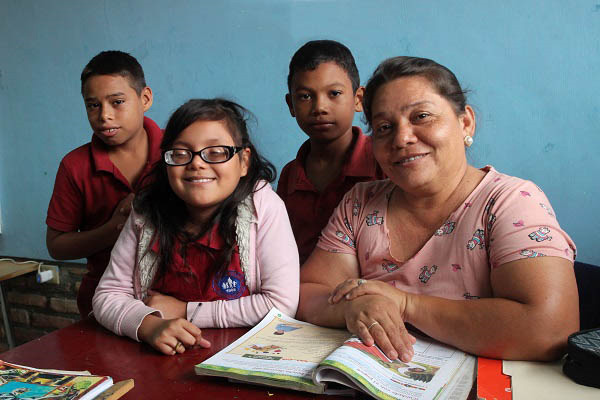 During this lesson, Belsy, another teacher in the department, helps her students learn the seasons of the year. 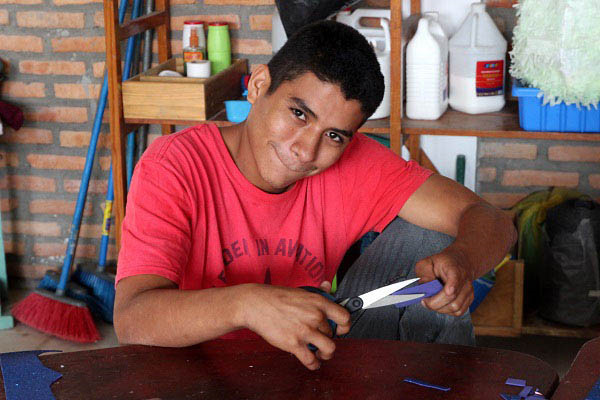 With the skills that he’s learning in his classes, Joaquin* might have the opportunity to continue his studies at a technical school in Tegucigalpa and eventually gain employment. 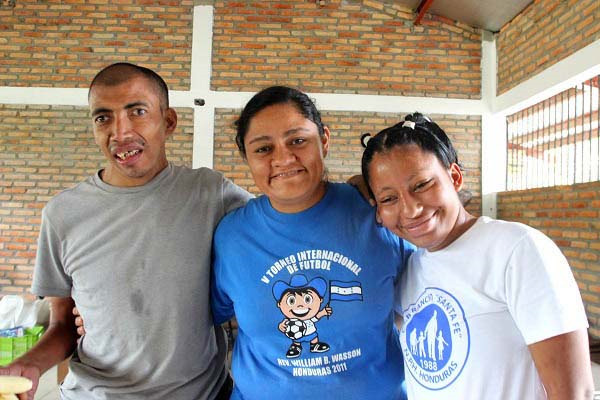 “I believe that we can all help people with special needs to feel empowered. We just have to learn to see the ability in the disability,” says Flores.
|







